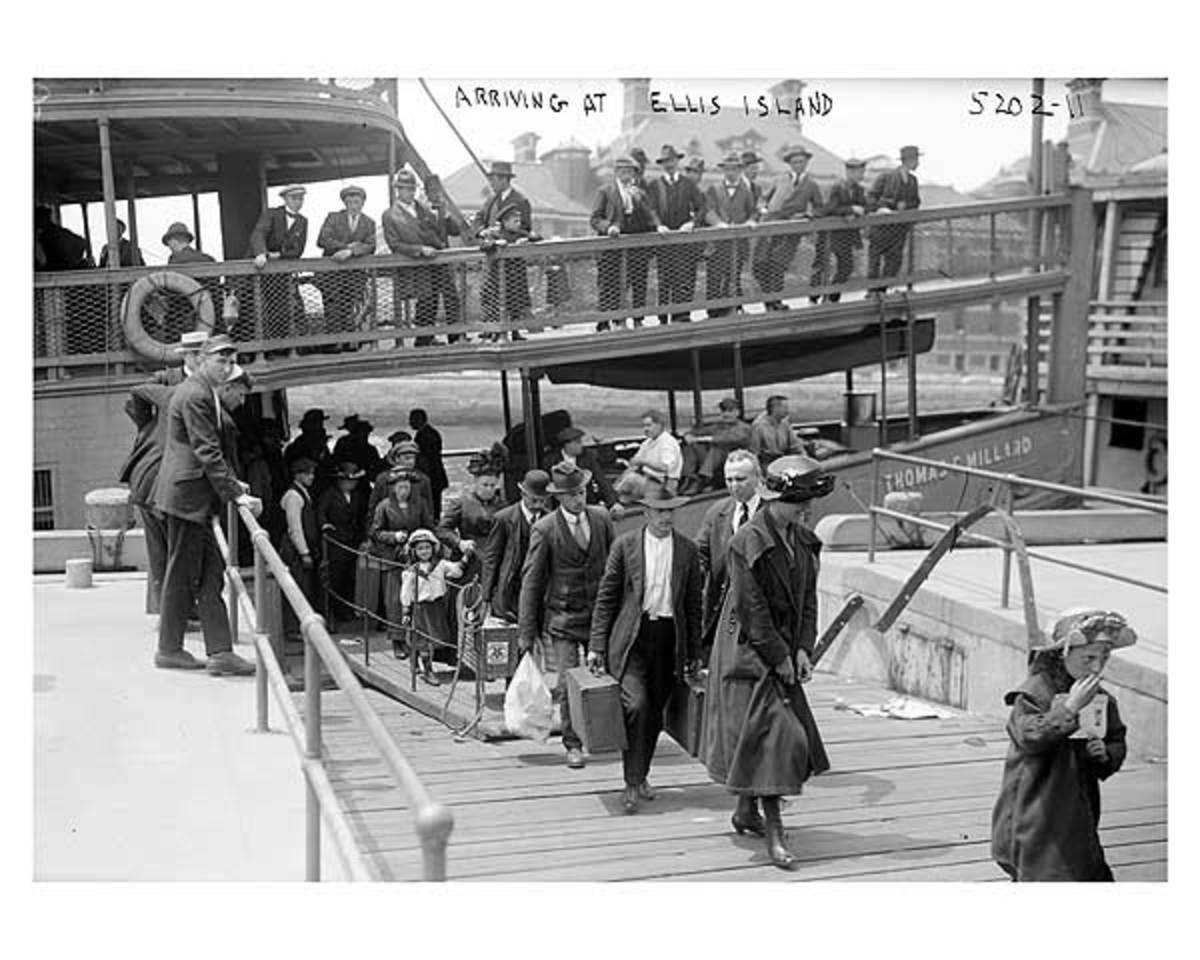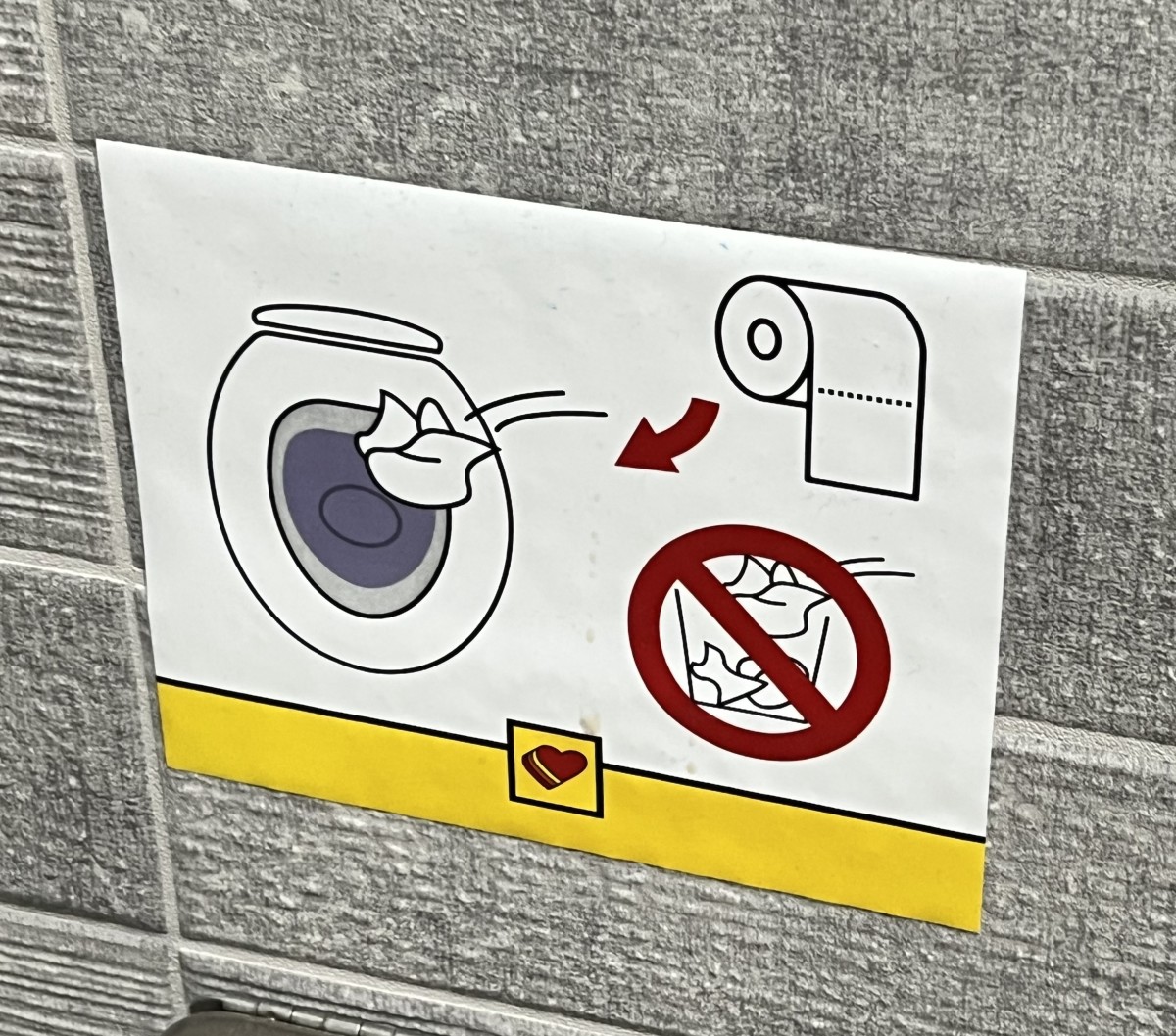How to Apply for Emigration to Ireland from India
Introduction and Disclaimer
The information in this hub is, to the best of my knowledge, true and accurate and, while the request was for information on how to emigrate from India to Ireland, the information provided here should work for a person from any nation seeking to immigrate to Ireland.
However, not only do laws and regulations change, but each person's situation and circumstances are different and this fact is critical in that naturalization (citizenship) in Ireland is granted by the Minister of Justice in the Irish government and Irish law states that it is granted at the Minister's absolute discretion.
In other words, simply going through the process and completing all the steps does not guarantee that you will be granted naturalization, your petition for citizenship can still be denied by the Minister without cause.
Further, I am not a lawyer and, while I hold dual American and Irish citizenship, my only physical contact with Ireland to date has consisted of having a cup of Irish coffee in the transient lounge of Shannon Airport during a refueling stop on a flight from Chicago to Istanbul, Turkey a number of years ago.
Have You Ever Considered moving to another country or changing your citizenship?
My Experience With The Immigration Process
I do, however, have experience dealing with American immigration officials beginning twenty-three years ago when my then wife and I adopted our first child from Honduras and I handled all the paperwork for his foreign adoption by us, his entry into the U.S. and his naturalization as a U.S. citizen.
I also recently handled all of the paperwork for the entry and immigration/citizenship process for my current wife and her 2 children to enter the U.S. from Russia to marry me.
Finally, I have the experience of dealing with the Irish Consulate in San Francisco twenty years ago when I first discovered that I qualified for Irish citizenship through the Foreign Births Registry.
According to the article, if I could complete the process before my then pregnant wife gave birth to our child, that child could also qualify for dual American and Irish citizenship through the Irish Foreign Births Registry.
I was able to research the process and file my paperwork for the Foreign Births Registry at the Consulate to register myself as an Irish citizen prior to the birth of our child.
I then repeated the the process a couple of months later after the birth of our son and was able to register him as a foreign born Irish citizen.
Based upon my experience in going through parts of both the U.S. and Irish citizenship processes and my reading of the process for persons of non-Irish descent, I feel it is possible for the average person, using patience and care, to navigate the process themselves as I have done.
However, if your situation is an exception to the normal rules and processes or if you run into a problem it is best to seek help from a competent attorney.
Ireland, Formerly a Land of Emigrants, Now attracts Immigrants
It was only a few short decades ago that Ireland languished in poverty and its people continued their long tradition of migrating to other parts of the world in search of a better life.
For centuries Ireland was a nation of emigrants who left their homeland in search of a better life. Suddenly, in the last years of the twentieth century, the Irish government relaxed its stranglehold on the economy and the island flourished.
Dubbed the Celtic Tiger because of its newly robust economy, Ireland quickly became one of the leading economies of Europe. Like a magnet, the new opportunities offered by its growing economy began to quickly lure back many of its recent emigrants.
Disipte the numbers of returning Irish, the number of new jobs and opportunities proved to be greater and Ireland suddenly found itself attracting rather than sending immigrants abroad. As with the United States and other advanced economies that continue to grow, Ireland needs immigrants to fill the new jobs that are being created.
Irish Expat Hugo O'Conor Founded Tucson and other Cities in America Southwest

Citizenship through Birth in Ireland or Through the Foreign Births Registry
Like other countries, Ireland tends to be choosy about who it lets in. First place goes to Irish living abroad. Irish abroad can be native Irish citizens who were born in Ireland and, for whatever reason, are currently living and working abroad. Then there are those who were born in Ireland to non-Irish parents and later returned to their parent's native land.
Under the 1956 Nationality and Citizenship Act passed by the Oireachtas (Irish National Parliament), anyone born on Irish soil is considered to be an Irish citizen.
Even if such a child returned to its parent's homeland and was required to renounce the Irish citizenship because that country did not recognize dual citizenship as Ireland does, that may not have affected the Irish citizenship in the eyes of Irish law because I believe that Ireland still requires that one send a sort of letter of resignation to an obscure government office in Dublin before they officially revoke the citizenship.
The third type of Irish citizen living abroad are those whose citizenship is through foreign birth registration.
The same Nationality and Citizenship Act of 1956 that confired citizenship on anyone born on Irish soil also provided that anyone whose parent or grandparent was born in Ireland and whose birth is registered with a local Irish Consulate is recognized as being an Irish citizen even though they were not born in Ireland.
Although born in American to parents who were born in America, I am also an Irish citizen since my Grandfather was born in Ireland. Once registered, the citizenship can be passed on to succeeding generations so long as their births are registered. If you were born in Ireland or had a grandparent who was born in Ireland, you are already an Irish citizen and can just move there (although you may have to first file some paperwork to officially establish your status as an Irish citizen).
Guide to Living & Working in Ireland
Post-Nuptial Citizenship
If your reason for wanting to emigrate to Ireland is because you are in love with and want to marry a person who is an Irish citizen, either by birth, through an ancestor or someone who became an Irish citizen through Naturalization (the process of which is explained below) then you can gain entry to Ireland through marriage.
Three years after your marriage to an Irish citizen, or three years after your spouse became recognized as an Irish citizen by registering in the Foreign Births Registary as the child or grandchild of an Irish citizen, you can file for post-nuptial citizenship based upon your marriage.
It is my understanding that you can marry and become an Irish citizen in this manner while you and your Irish citizen spouse are still living abroad or marry and move to Ireland with your Irish citizen spouse immediately and live in Ireland while waiting the three years to file for citizenship.
A word of caution is in order here and that is DON'T marry someone just to gain entry into Ireland and obtain nationalization in Ireland as the authorities frown on this and, if caught, will not only deport you but probably ban you from Ireland forever (remember, naturalization is granted at the Justice Minister's absolute discretion which means that if the Justice Minister doesn't feel a person should be granted naturalization and made an Irish citizen he or she just says "no" and your petition is rejected.
However, if you happen to be married or engaged to an Irish citizen (including one who's citizenship is through the Foreign Births Registry) you can skip the process described below and simply file for post-nuptial citizenship based upon your marriage.
The Work Permit Route for People With Skills
Ok, so if none of what I have described so far applies to you, there is still the normal immigration and naturalization process which is quite liberal compared to that of many European and other nations.
The first requirement is that you move to and reside in Ireland, but this requires your first obtaining a job in Ireland. Until recently, the only way to do this was to have a prospective employer obtain a work permit for you and hire you. Work permits had, and I believe still have, to be applied for by an employer and part of that process includes the employer showing that they have tried and failed to find a suitable employee locally. Exceptions to the work permit are residents of the European Economic Area (EEA) which consists of the member countries of the European Union (EU) and some non-EU Western European nations, and people who are not citizens of an EEA nation but are temporarily stationed in Ireland while under contract with a company registered in an EEA nation.
My guess is that high skilled jobs are the ones that are likely to be most difficult to fill locally and are thus the jobs for which it would be the easiest to obtain a work permit. In addition to high skilled jobs, ethnic restaurants are given work permits to bring in chiefs and catering staff for the preparation and delivery of their ethnic food. If you have experience in the preparation and delivery of Indian food you may be able to find a job with a restaurant in Ireland that specializes in Indian food. Also, work permits are provided for domestic help who are employed by Irish residents living abroad and who wish to keep the same people in their employ when they return to Ireland. Anyone moving to Ireland as domestic help must have worked for the employing Irish family for at least one year while the family was living abroad and the family must keep them in their employ when they return to Ireland.
New in 2007 – the Irish Green Card System
Continued rapid economic growth in Ireland is putting additional strain on the Irish labor market and, beginning in 2007, Ireland introduced a Green Card Permit system.
The new Green Cards can be applied for by both individuals and employers. While individuals may apply themselves for the Green Card a couple of qualifications must first be met:
1) the applicant must have an offer of job where the employer indicates that they will hire the individaul for at least 2 years (Green Cards will not be issued for jobs with a duration of less than 2 years); and,
2) the job must pay sixty thousand or more Euros per year (€60,000 which, at July 2007 exchange rates is the equivalent of U.S. $ 82,678).
There is also a page on the website of the Irish Department of Trade, Enterprise and Employment (the agency that issues the Green Cards among other things) that lists a number of skilled jobs for which workers are in short supply and which pay between €30,000 and €59,900 which also qualify for the Green Card.
However, these are the only jobs paying less than €60,000 which qualify for a Green Card. A final provision in the new law allows foreign students from non-EEA nations enrolled in third level graduate programs at Irish Universities with valid student visas to apply for Green Cards which will let them find work and remain in Ireland.
Full details of the Green Card and work permit programs can be found on the website of the Irish Department of Trade, Enterprise and Employment which manages these programs.
Except for foreign non-EEA students who are already in Ireland and enrolled in third level graduate programs, citizens of non-EEA nations seeking employment in Ireland must find a job in Ireland before they can apply for the Green Card (or have the employer apply for a work permit) and they must have the Green Card or work permit before they can enter Ireland.
If you plan to enter Ireland on a tourist or other non-employment visa with the intention of looking for work, I suggest that you first check with your local Irish Consulate to see if this is allowed as breaking the law at this stage could later be grounds for the Minister of Justice to deny your naturalization.
The fee for the first two year Green Card is €1,000 and the fee to renew the card at the end of two years is €1,500. However, the renewal card has no expiration date which means that, barring committing some act that gets you deported, you could continue to live and work in Ireland indefinitely as non-citizen.
Link to My Hub on How to Find a Job in Ireland When You Don't Live There
- How to Find a Job in Ireland When You Don't Live There
In July of 2007 I responded to a request, in the request section of HubPages, asking for advice on how to go about emigrating from India to Ireland. At the time I wrote the article the world economy in...
Tips for Finding a Job in Ireland while Living in India
While finding a job in Ireland while living in India may not be easy, it is not impossible either. Be wary of agencies claiming, for a fee (often a large one) to find a job for you. I would first go to Google or other search engine and type Ireland job websites in the search bar. This will give you links to Irish sites where you can post your curriculum vite (resume), view job openings being advertised by employers and apply for these jobs. Most such sites charge employers to advertise jobs but let job seekers register and use the site for free.
Another option for finding a job would be to try to get a job in India with an Indian subsidiary of an Irish company or a job with a multinational corporation that has operations in Ireland. If you succeed in getting a job with a company like this, try to arrange to be transferred to their Irish operation. You can obtain information about companies, including the location of their operations and nation in which the company or its parent is headquartered from sites like Yahoo Finance, Google Finance, Hoovers.com, etc. as well as simple Google searches on the company name.
You can also try to build a network of other people who have connections to Ireland and may be able to provide information or advice that could help you find a job and move to Ireland. There are a growing number of websites devoted to connecting people with the same interests, so check them out and join some that appear like they might be of help in your quest. HubPages would be a start as there are a number of Irish members who actually live in Ireland as well as a number of Indian members any of whom may be able and willing to assist you with information and possibly referrals.
Because of the number of requests for information on how to find work in Ireland, I recently wrote a follow-up Hub on that topic. There is a link to that Hub in the Link capsule at the top of this capsule.
Naturalization Process after You Get Your Job in Ireland
Once you get permission to come to Ireland and work you have to live in Ireland as a legal resident for five years before you can apply for citizenship. The rule is that you reside in Ireland for five of the nine years before you can submit your application for naturalization and the twelve months preceding the application must have been spent continuously residing in Ireland. In other words, over a period of up to nine years you must spend a total of five years physically present in Ireland - the first four do not have to be continuous and the last must be continuous. At this point, provided you are eighteen years of age or older, you can file your application for naturalization.
Along with your application you must also submit an original and a legible photocopy of the following documents:
Your birth certificate (with a certified translation if itis not in English) Your Indian Passport Your Garda Siochana Certificate of Registration also known as a Green Book - this is a police registration document that all citizens of non-EEA nations must obtain and carry if they reside in Ireland for more than three months. A marriage certificate (if you are married) with certified translation if not in English. Pay stubs or other statements of pay from your employer Bank account or other finanacial statements showing that you are financially stable Certificate or letter from the Irish Revenue Commission showing that you are current with your payment of all personal and business taxes you are required to pay.
Finally, your application must indicate that you are of good moral character and that you intend to reside in Ireland after naturalization. Remember, approval or rejection of your application for citizenship is at the absolute discretion of the Minister of Justice. While it is more than likely that there is a process by which applications are reviewed and approved by the Minister's subordinants in the Minister's name, any that appear questionable, are objected to or quetioned by an outsider or are controversial and appear in the press will probably be personally reviewed by the Minister and likely rejected.
One Final Option
If you find that you cannot qualify under any of the scenarios described above, there is one other possibility and that is to seek foreign worker status and citizenship in the UK and then reside in Northern Ireland which is a part of the UK.
Northern Ireland, in addition to having a labor shortage due to a rapidly growing economy, is a part of the island of Ireland and its citizens are considered Irish citizens by the government of the Irish Republic (although I don't know if this extends to naturalized citizens of the UK residing in Northern Ireland) with the right to travel, work and vote in the Republic.
Many of the UK citizenship laws and regulations as well as the process for obtaining work permits and residing in the UK appear to be very similar to those of Ireland, including a provision for citizenship for those who have a grandparent who was a citizen of the UK.
Since India is a member of the British Commonwealth of Nations and former British colony you may find a way to get to Ireland via the UK
Links to My Other Hubs on Immigration and Citizenship
- How to Find a Job in Ireland When You Don't Live There
Before leaving a job and moving to a new place it is a good idea to line up a job in the new location first. This is especially true if you are moving to a different country. Here are some ideas for finding work from a distance. - Bringing Your Foreign Fiancée to the U S
With so many Americans traveling and working abroad to say nothing of meeting people via the Internet, it is not surprising that many are finding love and marrying someone from abroad. Here is how to legally bring your spouse to the United States. - How to Become a U S Citizen
The United States is a nation of immigrants. Despite the fact that the country has been attracting immigrants since colonial days beginning in the seventeenth century the lure of immigrating to the United States and becoming a citizen remains as stro
© 2007 Chuck Nugent









